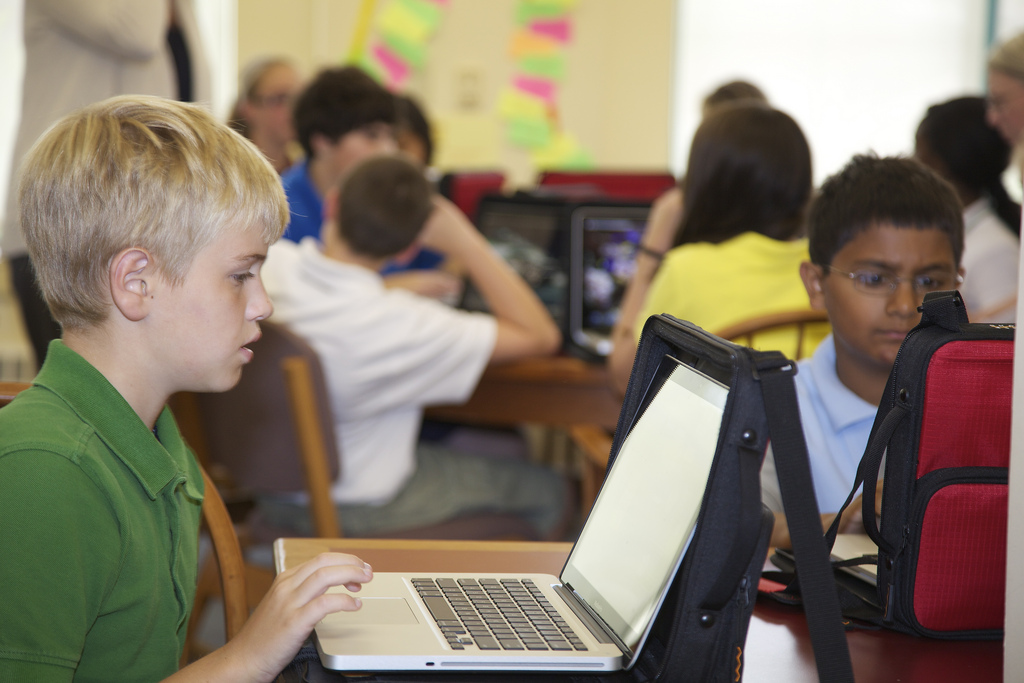I know adult learning theories. I’m skilled in instructional design and a master of curriculum models. I’m an expert in the facilitation and evaluation of learning. I am a learning professional! (Cue superhero music…)
Then I was asked to create a course for sixth graders.
They told me the goals were simple: Create an elective for the sixth grade using project-based learning. Use all the academic disciplines (English, math, science, history, art, and music) to demonstrate practical application in the real world. Incorporate a project that will introduce career education, teach project management skills, and instill teamwork. (Teamwork? Have they met any sixth graders?) Also, I was told to keep in mind that these students are “only 12 years old” — a phrase I later learned meant they were smarter and more creative than most adults I know.
How hard could it be? (BTW, this phrase will be the inscription on my tombstone someday.)
Before I tell you what they taught me, let me give you a little brief on the course. The students were to write a business plan to open a candy store, and then present it to “investors” for funding. Three teams — Finance, Marketing, and Products/Distribution — had to find a location based on demographics, create a floor plan, decide on a store name, create marketing materials, decide what products to sell, and determine the cost. Each team worked on specific tasks, but they had to work together as a group to make decisions and make sure everything worked together. They learned a great many lessons, but then so did I.
Lesson 1: I taught them basic project management skills and was questioned extensively on my experience in PM and/or opening a candy store. My lesson: Don’t try to pull anything over on them: the little twerps grilled me about my credentials!
Lesson 2: We played a team-building and problem-solving game where they had to get one piece of candy from Point A to Point B. One of the obstacles was that the teacher (me) grabbed one piece of candy and ate it, so they had to start over. This happened four times, which they were all too happy to report, but they did finally complete the task. My lesson: Apparently teamwork doesn’t apply to the teacher. (Note to self: next time, don’t bring chocolates.)
Lesson 3: To meet the science requirement, we decided to teach about crystallization, so we made rock candy in the classroom. Just think: sugar-water everywhere. They are still cleaning it up. My lesson: (This one came from the students.) Find a different science experiment.
Lesson 4: We built-in accountability to each other, not to the teacher or a grade. They took it very seriously and kept each other on task. And they did so in a respectful manner with surprising little emotion in spite of raging 12-year-old hormones! My lesson: Peer pressure can be positive!
Lesson 5: We gave them a few Internet resources to get them started, but they found a ton more than I ever thought existed. My lesson: The next time I need to do research, I’m calling one of them.
Lesson 6: They were given an opportunity to present to “investors.” One of the students scheduled to present was unexpectedly out that day, but her team didn’t miss a beat. Had they not apologized for her absence, we never would have known. Their presentations were thorough and incredibly creative. My lesson: (This one is my favorite.) Give them the opportunity, and they will rise to the occasion.
As I reflected on this incredible experience, I realized there were parallel lessons for those of us who spend most of our time creating programs for adults.
- Credibility: Our clients expect us to be both skilled in our profession and have at least a working knowledge of their business.
- Teams: Creating the right obstacle can teach more than problem-solving: it can build a team. (Except if you’re the teacher I guess!)
- Experiential learning: It’s a great teaching tool; just make sure it’s manageable.
- Accountability: Responsibility to each other can be a strong motivator, especially when the outcome is shared.
- Resources: Don’t think you have to supply all the resources. Teach the learner to find them.
- Accomplishment: Create the opportunity, and you’d be amazed at what a group of individuals — regardless of age — can accomplish.
And the final lesson for those of you who are worried about the future: don’t be. I’ve met the future and it is very bright!
Photo Credit: Worcester Academy via Compfight cc




